Over 20 Countries Have Already Applied To Join BRICS in 2025
Over 20 Countries Have Already Applied to Join BRICS in 2025: What This Means for Global Economic Power Dynamics
In a remarkable shift in the global geopolitical and economic landscape, over 20 countries have already applied to join BRICS in 2025, signaling growing interest in the bloc and its influence on global trade, politics, and development. The BRICS group, consisting of Brazil, Russia, India, China, and South Africa, has long been a symbol of the rising economic power of emerging markets. The potential expansion of the group raises critical questions about the future of global governance and the balance of power in international relations.
In this article, we will explore the reasons behind the surge of interest in BRICS, the implications of this expansion for the global economy, and how the addition of new members could reshape the group’s influence on key global issues.
What is BRICS?
BRICS is a grouping of five major emerging economies—Brazil, Russia, India, China, and South Africa—originally conceived in 2009 as a way to provide a platform for collaboration among large developing economies. Over the years, BRICS has become a key voice in global affairs, advocating for reforms in international institutions, promoting economic cooperation, and addressing issues related to development, trade, and social progress. The group represents about 42% of the global population and nearly a quarter of global GDP, giving it considerable economic and geopolitical clout.
Each of the BRICS countries brings unique strengths to the table:
- Brazil: A major player in Latin America, Brazil contributes to BRICS’ focus on agriculture, energy, and environmental issues.
- Russia: With its vast natural resources, Russia is crucial in energy discussions and plays a key role in global security.
- India: India is an emerging tech hub and a driving force behind BRICS’ focus on digital transformation and inclusive growth.
- China: As the world’s second-largest economy, China is a dominant player in trade, manufacturing, and infrastructure development.
- South Africa: Representing the African continent, South Africa adds vital perspectives on development and governance.
While BRICS has already demonstrated significant influence, the prospect of expanding the group has generated considerable attention from around the world.
Why Are So Many Countries Interested in Joining BRICS?
The growing interest in BRICS is primarily driven by the desire of emerging and developing countries to play a larger role in shaping global governance. Several factors contribute to the widespread appeal of the group:
- Growing Economic Influence: BRICS economies represent a significant portion of global trade, investment, and economic growth. By joining the group, countries seek to strengthen their economic ties with some of the world’s largest emerging markets, opening up new trade and investment opportunities. The bloc also offers an alternative to the Western-dominated economic institutions like the World Bank and the International Monetary Fund (IMF), providing member countries with a platform to voice their concerns and push for reforms.
- Desire for Greater Political Clout: BRICS is increasingly seen as a powerful counterbalance to Western-dominated global governance institutions. Many countries view membership as a way to enhance their political influence on the world stage, particularly in areas such as climate change, trade policies, and international diplomacy. As the geopolitical landscape shifts, aligning with BRICS provides an opportunity for countries to amplify their voices in key global discussions.
- Access to the New Development Bank (NDB): One of BRICS’ key achievements has been the establishment of the New Development Bank, which provides financing for infrastructure and development projects in emerging markets. The NDB offers an alternative to traditional Western financial institutions, providing loans with more favorable terms for developing countries. Many of the nations applying to join BRICS are looking to tap into the NDB’s resources to fund their development priorities and infrastructure projects.
- A Platform for South-South Cooperation: BRICS offers a unique platform for collaboration among the Global South. Many countries in Africa, Asia, and Latin America view the bloc as a way to foster South-South cooperation, share knowledge, and collaborate on economic development projects. This approach is particularly attractive for nations looking to break free from dependency on Western powers and chart their own development paths.
- Geopolitical Shifts: As the global balance of power continues to shift away from traditional Western powers, countries are looking for new alliances that reflect their economic and geopolitical interests. BRICS’ growing influence as a geopolitical force makes it an attractive alternative to the West, especially as countries in regions like Africa, Latin America, and Asia seek greater independence in their foreign relations.
Which Countries Have Applied to Join BRICS?
Over 20 countries have reportedly expressed their desire to join BRICS by 2025, with several applications already submitted. These countries span across different regions, including Asia, Africa, Latin America, and the Middle East. Some of the most notable applicants include:
- Argentina: With its strong agricultural and natural resources sectors, Argentina’s membership in BRICS would strengthen the group’s influence in Latin America. The country has expressed interest in deepening economic ties with China, India, and other BRICS members, particularly in the fields of trade and infrastructure development.
- Egypt: A key player in the Middle East and North Africa, Egypt has long sought to strengthen its ties with emerging economies. Membership in BRICS would provide Egypt with an important platform for fostering economic cooperation and political influence within the region.
- Indonesia: As the largest economy in Southeast Asia, Indonesia’s inclusion in BRICS would bolster the group’s presence in the Asia-Pacific region. Indonesia has also shown interest in leveraging BRICS to promote digital transformation and innovation in the region.
- Turkey: Turkey’s growing role as a bridge between Europe, Asia, and the Middle East has made it a strong candidate for BRICS membership. The country has been seeking to diversify its alliances in recent years, and joining BRICS would provide it with a new avenue for economic and political cooperation.
- Nigeria: As Africa’s largest economy, Nigeria’s inclusion would bring significant weight to BRICS in terms of regional influence. Nigeria has expressed interest in using BRICS as a platform to address Africa’s infrastructure needs and promote sustainable development across the continent.
- Iran: Given its strategic location and energy resources, Iran has also shown interest in joining BRICS. Membership would provide Iran with an opportunity to strengthen its economic and political ties with major emerging economies, particularly as it seeks to reduce its reliance on Western markets.
- Saudi Arabia: As one of the world’s leading oil exporters, Saudi Arabia’s participation in BRICS would increase the group’s energy influence. Saudi Arabia has been exploring new alliances outside of traditional Western frameworks, and BRICS presents an attractive option for diversifying its geopolitical and economic partnerships.
These are just a few examples of the countries vying to join BRICS. Other applicants span regions including Africa, Latin America, and Asia, reflecting the growing global interest in the group’s development model and collaborative opportunities.
What Does BRICS Expansion Mean for Global Power Dynamics?
The expansion of BRICS is expected to have a significant impact on global economic power dynamics. Several key consequences could arise from the inclusion of new members:
- A Shift in Global Economic Leadership: BRICS already represents a significant portion of the world’s population and GDP. The inclusion of more countries, particularly large emerging economies, would further solidify its position as a counterbalance to Western-dominated economic institutions. BRICS could become a more powerful voice in global trade negotiations, investment flows, and economic governance.
- Increased Influence in Global Development: The New Development Bank (NDB) could grow substantially as new members join, allowing for more financing for infrastructure and development projects in emerging markets. This could shift the development paradigm away from traditional Western-dominated financial institutions like the World Bank and IMF.
- Stronger South-South Cooperation: The expansion of BRICS would deepen South-South cooperation, providing developing nations with greater opportunities to collaborate on issues like poverty reduction, sustainable development, and climate change. It would also enable countries to share resources and knowledge, promoting more equitable development pathways.
- Geopolitical Shifts: BRICS’ expansion could alter geopolitical alliances and trade relationships, particularly for countries seeking to reduce their reliance on traditional Western powers. As more nations join the bloc, the global geopolitical balance may become more multipolar, with emerging economies taking a more prominent role in shaping international affairs.
- Challenges to Cohesion: While expansion brings opportunities, it also presents challenges in terms of maintaining cohesion within the group. With more members, BRICS will need to navigate diverse political, economic, and cultural differences. Ensuring that all members have a voice and that decision-making remains efficient will be crucial for the group’s long-term success.
In Conclusion
The fact that over 20 countries have already applied to join BRICS by 2025 speaks to the growing importance of the bloc in the shifting global order. As more emerging and developing economies seek to align themselves with BRICS, the group’s influence on global economic and geopolitical issues will continue to grow. The expansion of BRICS is a testament to the changing dynamics of global power, where emerging economies are asserting their voices and seeking a larger role in shaping the future of the world. As the group continues to evolve, its impact on global governance, trade, and development will be keenly watched by policymakers and analysts around the world.
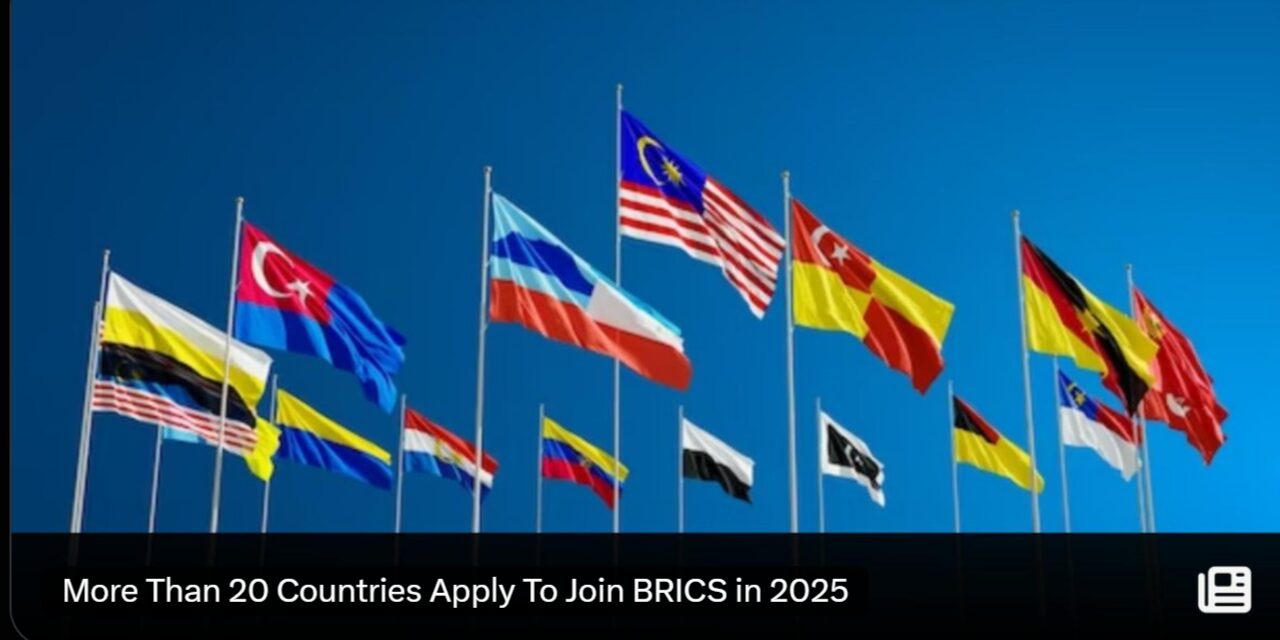
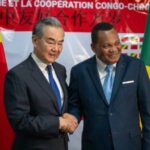
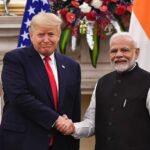

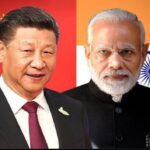


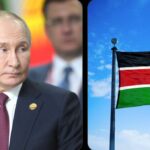
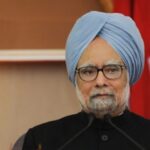








Post Comment